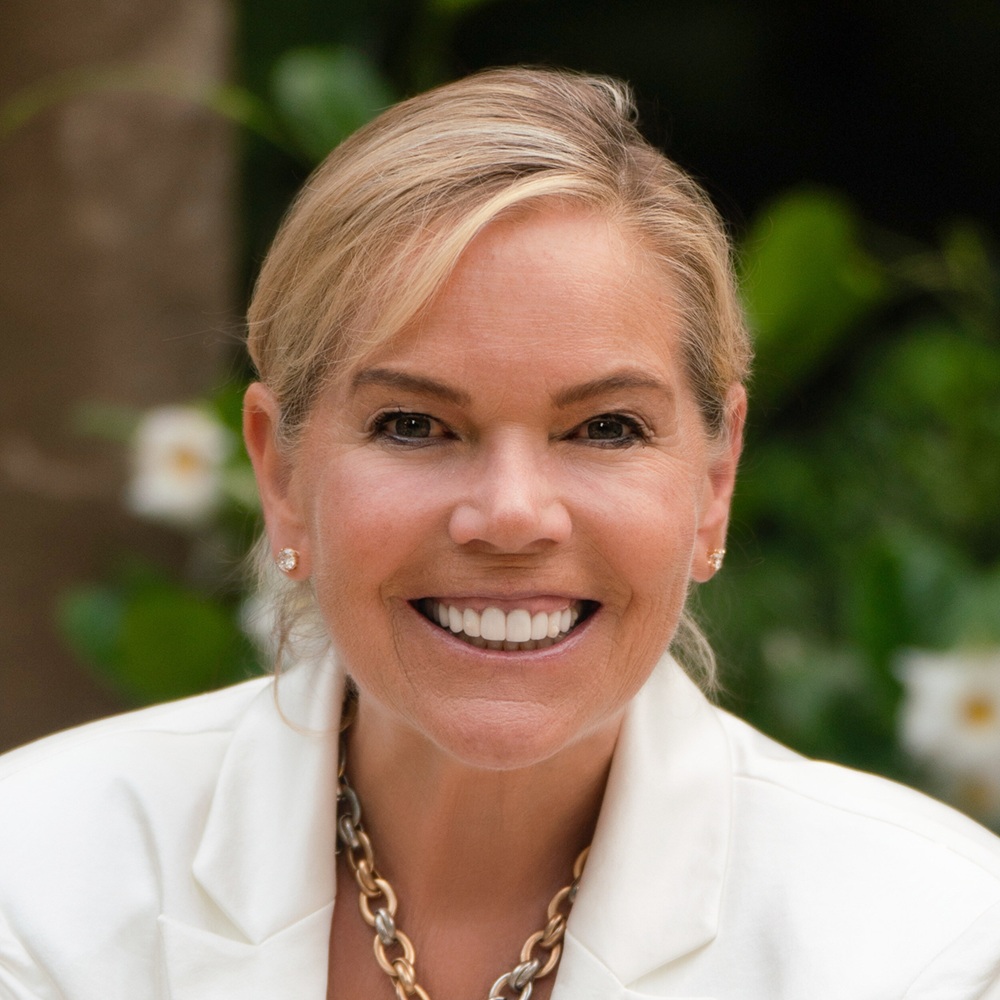Is There a Right Way to Invest in Bitcoin in 2022? Yes.
Before you buy into Bitcoin, Ethereum or any other form of cryptocurrency, first, decide whether you want to be a dabbler (which is OK!) or a serious investor.


Profit and prosper with the best of Kiplinger's advice on investing, taxes, retirement, personal finance and much more. Delivered daily. Enter your email in the box and click Sign Me Up.
You are now subscribed
Your newsletter sign-up was successful
Want to add more newsletters?

Delivered daily
Kiplinger Today
Profit and prosper with the best of Kiplinger's advice on investing, taxes, retirement, personal finance and much more delivered daily. Smart money moves start here.

Sent five days a week
Kiplinger A Step Ahead
Get practical help to make better financial decisions in your everyday life, from spending to savings on top deals.

Delivered daily
Kiplinger Closing Bell
Get today's biggest financial and investing headlines delivered to your inbox every day the U.S. stock market is open.

Sent twice a week
Kiplinger Adviser Intel
Financial pros across the country share best practices and fresh tactics to preserve and grow your wealth.

Delivered weekly
Kiplinger Tax Tips
Trim your federal and state tax bills with practical tax-planning and tax-cutting strategies.

Sent twice a week
Kiplinger Retirement Tips
Your twice-a-week guide to planning and enjoying a financially secure and richly rewarding retirement

Sent bimonthly.
Kiplinger Adviser Angle
Insights for advisers, wealth managers and other financial professionals.

Sent twice a week
Kiplinger Investing Weekly
Your twice-a-week roundup of promising stocks, funds, companies and industries you should consider, ones you should avoid, and why.

Sent weekly for six weeks
Kiplinger Invest for Retirement
Your step-by-step six-part series on how to invest for retirement, from devising a successful strategy to exactly which investments to choose.
You’ve read stories about celebrities, like Elon Musk and Mark Cuban, who supposedly are cashing in on Bitcoin. You’ve seen ads for companies that claim to offer a “safe and easy way” to buy it. You probably even know a few people who have dabbled in it.
But beyond the frothy headlines and its reputation as the Wild West of the monetary marketplace, crypto is slowly emerging as a viable element of many people’s long-term investment strategies. More than one in five investors with assets between $250K to $2.5M+ said they have 6% to less than 10% of their total investments in Bitcoin and crypto, according to a new survey by Wealthramp. This is even higher among Millennials, with 43% of this investor age group owning up to 10% in digital currencies.
The first thing to ask before jumping on the crypto bandwagon is, most importantly, why do you want to invest in it?
From just $107.88 $24.99 for Kiplinger Personal Finance
Become a smarter, better informed investor. Subscribe from just $107.88 $24.99, plus get up to 4 Special Issues

Sign up for Kiplinger’s Free Newsletters
Profit and prosper with the best of expert advice on investing, taxes, retirement, personal finance and more - straight to your e-mail.
Profit and prosper with the best of expert advice - straight to your e-mail.
Some people own Bitcoin as a way to make a political statement. Or maybe it’s because you believe you can make a decent profit if you buy it right now. A big attraction to owning cryptocurrencies is just the fact they are new and exciting investment opportunities.
If these are your reasons, then you might want to get your feet wet as a crypto dabbler. Open an account with an online crypto exchange and fund it with “fun money” you can afford to lose.
But if you’re really serious about treating crypto as a real investment, you’ll want to understand what makes it unique.
How does Bitcoin work?
Bitcoin, Ethereum and other cryptocurrencies are real in the same way that a digital image or video is real. Yes, they only exist in cyberspace, but then again, so does this article.
Two factors make cryptocurrency different from other kinds of currencies.
- First, because it takes a huge amount of computing power to create crypto, there is a finite supply available to consumers. The more people who want to own a share of the crypto pie, the higher the price rises.
- Second, crypto isn’t “backed” by the full faith and credit of a government. That’s why it has a great appeal among people who are opposed to government regulations. However, the flipside of this lack of oversight is a lack of formal protections for consumers.
In many ways, investing in crypto is like investing in baseball cards or Beanie Babies, in that their value only reflects consumers’ ever-changing sentiments about their collectability. While some cryptos do have value in terms of the transactional processes they enable, price swings in general are driven solely by supply and demand. And like most investments, those who get in and out first tend to profit the most.
So, what makes cryptocurrency something more than a digital Ponzi scheme? The blockchain. Without getting into details, blockchain is a groundbreaking open-source cyber-technology that records every single cryptocurrency transaction in a way that can’t be deleted or altered.
When you buy into Bitcoin, your purchase will be recorded on the blockchain (but your privacy will be protected). As the blockchain becomes more widely used for mainstream transactional purposes, the more likely bitcoin and other cryptos will play a role in serving as the monetary tokens for these exchanges.
Is Bitcoin safe to buy?
While you can use Robinhood and other online brokers apps to trade crypto directly, none of the established discount brokers like Fidelity and Schwab let you do it — with them you can only invest in crypto futures or ETFs that invest in crypto futures.
Today, most people buy and sell crypto directly using crypto exchanges like Coinbase. But it’s important to understand that, unlike banks and brokers, currency exchanges aren’t legally required by the FDIC, FINRA or the SEC to guarantee the full return of crypto stolen from your account, although most do carry crime insurance to protect a portion of digital assets they hold in storage. This is worth considering, since in 2020 alone, hackers stole $3.8 billion in crypto in 122 separate attacks, a third of which were aimed directly at blockchain users. Between March and May of 2021, hackers stole crypto from more than 6,000 Coinbase accounts. Around the world, dozens of hacked crypto exchanges have gone bankrupt after losing everything to cybertheft and embezzlement, leaving consumers with little or no resource.
Could this happen in the U.S.? Time will tell. Knowing all these risks, if you still believe in the long-term investment potential of crypto, then your next step is to figure out how to use it responsibly.
Is your crypto strategy a hedge for inflation or a sideways stock market?
It’s important to understand the impact even a small allocation to crypto may have on your overall investment strategy. While it adds a degree of diversification beyond stocks and bonds, it’s not a risk mediator. Why? Because crypto is inherently volatile. Its huge price swings are driven solely by fear and greed, rather than by quantifiable business, economic or geopolitical factors.
And once you decide to add it, how do you choose among the hundreds of cryptos out there? Unlike stocks or bonds, there’s no formal research available to help you figure out which digital currency offers the best “bank for your buck.”
That’s why if you’re serious about crypto as a long-term strategic investment, you may want to work with a qualified fee-only fiduciary financial adviser who has expertise with digital currencies.
Not only will such an adviser have access to research that makes evaluating cryptos something more than a wild guess, but they also have sophisticated financial modeling tools that can hypothetically illustrate its potential long-term impact on your portfolio under various return scenarios. Keep in mind that none of these models can in any way predict future results.
If you really want to invest in crypto, most financial advisers who have knowledge of crypto recommend that it comprise no more than 5% of your portfolio. And that’s only if you have a long time horizon (20 years or more) and a moderate to high appetite for risk. (For more, please read How Much Bitcoin Should I Own? A Mathematical Answer.)
Future of cryptocurrency in 2022 and beyond
Since at the moment crypto isn’t regulated by the SEC or FINRA, advisers can’t use institutional brokerage and custodial platforms to purchase and hold it on your behalf. That’s why most simply offer guidance to clients on how to make their own self-directed crypto purchases.
However, some fee-only financial advisers are test-driving the first generation of applications that do enable them to purchase and manage crypto for their clients. Once the SEC and FINRA finalize the rules of the road for crypto investing, we should see a stampede by Fidelity, Schwab and other custodians to add crypto trading to their platforms. This will be critical, since one of the key responsibilities of advisers will be to constantly monitor crypto values and rebalance portfolios when price swings push crypto allocations out of their target ranges.
Crypto isn’t a passing fad. It’s here to stay, and crypto investing will eventually be regulated to offer the same level of protection for consumers as investments in securities, mutual funds and ETFs.
If you’re considering making a substantial investment in crypto right now, it is worth your time to work with a qualified fee-only financial adviser who can help you figure out how to harness its potential in a thoughtful and responsible way.
Profit and prosper with the best of Kiplinger's advice on investing, taxes, retirement, personal finance and much more. Delivered daily. Enter your email in the box and click Sign Me Up.

With more than 25 years in investor advocacy, Pam Krueger is the founder and CEO of Wealthramp, an SEC-registered adviser matching platform that connects consumers with rigorously vetted and qualified fee-only financial advisers. She is also the creator and co-host of the award-winning MoneyTrack investor-education TV series, seen nationally on PBS, and Friends Talk Money podcast.
-
 The New Reality for Entertainment
The New Reality for EntertainmentThe Kiplinger Letter The entertainment industry is shifting as movie and TV companies face fierce competition, fight for attention and cope with artificial intelligence.
-
 Stocks Sink With Alphabet, Bitcoin: Stock Market Today
Stocks Sink With Alphabet, Bitcoin: Stock Market TodayA dismal round of jobs data did little to lift sentiment on Thursday.
-
 Betting on Super Bowl 2026? New IRS Tax Changes Could Cost You
Betting on Super Bowl 2026? New IRS Tax Changes Could Cost YouTaxable Income When Super Bowl LX hype fades, some fans may be surprised to learn that sports betting tax rules have shifted.
-
 The 4 Estate Planning Documents Every High-Net-Worth Family Needs (Not Just a Will)
The 4 Estate Planning Documents Every High-Net-Worth Family Needs (Not Just a Will)The key to successful estate planning for HNW families isn't just drafting these four documents, but ensuring they're current and immediately accessible.
-
 Love and Legacy: What Couples Rarely Talk About (But Should)
Love and Legacy: What Couples Rarely Talk About (But Should)Couples who talk openly about finances, including estate planning, are more likely to head into retirement joyfully. How can you get the conversation going?
-
 How to Get the Fair Value for Your Shares When You Are in the Minority Vote on a Sale of Substantially All Corporate Assets
How to Get the Fair Value for Your Shares When You Are in the Minority Vote on a Sale of Substantially All Corporate AssetsWhen a sale of substantially all corporate assets is approved by majority vote, shareholders on the losing side of the vote should understand their rights.
-
 How to Add a Pet Trust to Your Estate Plan: Don't Leave Your Best Friend to Chance
How to Add a Pet Trust to Your Estate Plan: Don't Leave Your Best Friend to ChanceAdding a pet trust to your estate plan can ensure your pets are properly looked after when you're no longer able to care for them. This is how to go about it.
-
 Want to Avoid Leaving Chaos in Your Wake? Don't Leave Behind an Outdated Estate Plan
Want to Avoid Leaving Chaos in Your Wake? Don't Leave Behind an Outdated Estate PlanAn outdated or incomplete estate plan could cause confusion for those handling your affairs at a difficult time. This guide highlights what to update and when.
-
 I'm a Financial Adviser: This Is Why I Became an Advocate for Fee-Only Financial Advice
I'm a Financial Adviser: This Is Why I Became an Advocate for Fee-Only Financial AdviceCan financial advisers who earn commissions on product sales give clients the best advice? For one professional, changing track was the clear choice.
-
 I Met With 100-Plus Advisers to Develop This Road Map for Adopting AI
I Met With 100-Plus Advisers to Develop This Road Map for Adopting AIFor financial advisers eager to embrace AI but unsure where to start, this road map will help you integrate the right tools and safeguards into your work.
-
 The Referral Revolution: How to Grow Your Business With Trust
The Referral Revolution: How to Grow Your Business With TrustYou can attract ideal clients by focusing on value and leveraging your current relationships to create a referral-based practice.